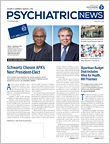When I announced to my colleagues that I was going to have a baby, I was met mostly with congratulations and hugs. But one comment stuck with me. When I arrived at work around week 39, a colleague asked, “Aren’t you supposed to be doing nothing at this point?”
When I asked women colleagues (residents and faculty) whether they’d heard any such pointed comments during their pregnancies, I was surprised. The most common question they’d gotten was something like, “Now that your priorities have changed, are you going to quit training (or working)?” Many others had been passed over for awards, honors, or committees because of assumptions about their dedication to medicine or their work. In other words, many complaints were not about being forced to do too much work, but about missing opportunities.
Compared with male physicians, women in medicine are more likely to experience depression and burnout and three times as likely to take their own lives. Studies suggest this discontent has something to do with the pressures of work-life balance. But another more insidious problem than unmet expectations may be a lack of expectations.
Speaking for myself, I was prepared to juggle a more complicated life, to show up at work on time after sleepless nights, and to (ever so slightly) scale back my ambitions. But what has been most unexpected, and most difficult, is the assumption by some colleagues that I am no longer committed to my work simply because I’m a parent and that I am no longer capable of or interested in being ambitious.
Structural barriers are part of the problem. Residencies (and the medical community generally) are notably bad at supporting families. Consider how residency programs don’t provide an amount of leave consistent with medical recommendations (such as the recommendation from the American Academy of Pediatrics for 12 weeks). Or how adoptive parents, same-sex male couples, and birth fathers often get little to no leave, furthering the assumption that women will be primary caregivers. The APA Women’s Caucus, admirably, has been advocating for 12 weeks of paid leave for all parents.
Another problem is the way we approach families in medicine by assuming “family” issues are “women’s” issues or “pregnancy” issues. They are not. Thinking this way does a disservice to adoptive parents, to fathers, and to many women who don’t want children but who are also sized up based on gender-implied priorities.
Now, this isn’t the sort of harassment that so many women have courageously addressed in the last few months. And what I’m talking about here is only a tiny part of the many challenges women face in medicine. But it still matters. It perpetuates an environment wherein women can be held back unnecessarily for their reproductive choices.
The irony is that—despite the increased stresses children can bring—residents with children may actually be less likely to experience burnout. At least one study, appearing in the March 2002 Annals of Internal Medicine, indicates that parenting is associated with less depression and cynicism and with more “humanistic” feelings. So, while nobody would suggest having children for the sake of preventing burnout, I’d certainly argue that we shouldn’t make it more difficult for physicians to have children.
When we talk about burnout, and about how women in particular are affected, we often dismiss the problem as “work-life balance,” as if that’s an explanation. In our day-to-day lives, we can refrain from assuming that parenthood implies anything about whether women are interested in new challenges and opportunities. We can also adjust our parental leave policies to make it easier for parents who don’t give birth to take on responsibilities at home.
When my colleague asked whether I should be doing nothing in the weeks before my due date, I wasn’t sure how to respond. The answer was obviously yes, because I should have had more parental leave and support. But the answer was also clearly no, because I love my work.
What did I actually say? Nothing. I smiled and changed the subject. ■
“Stress in Medical Residency: Status Quo After a Decade of Reform” can be accessed
here.



